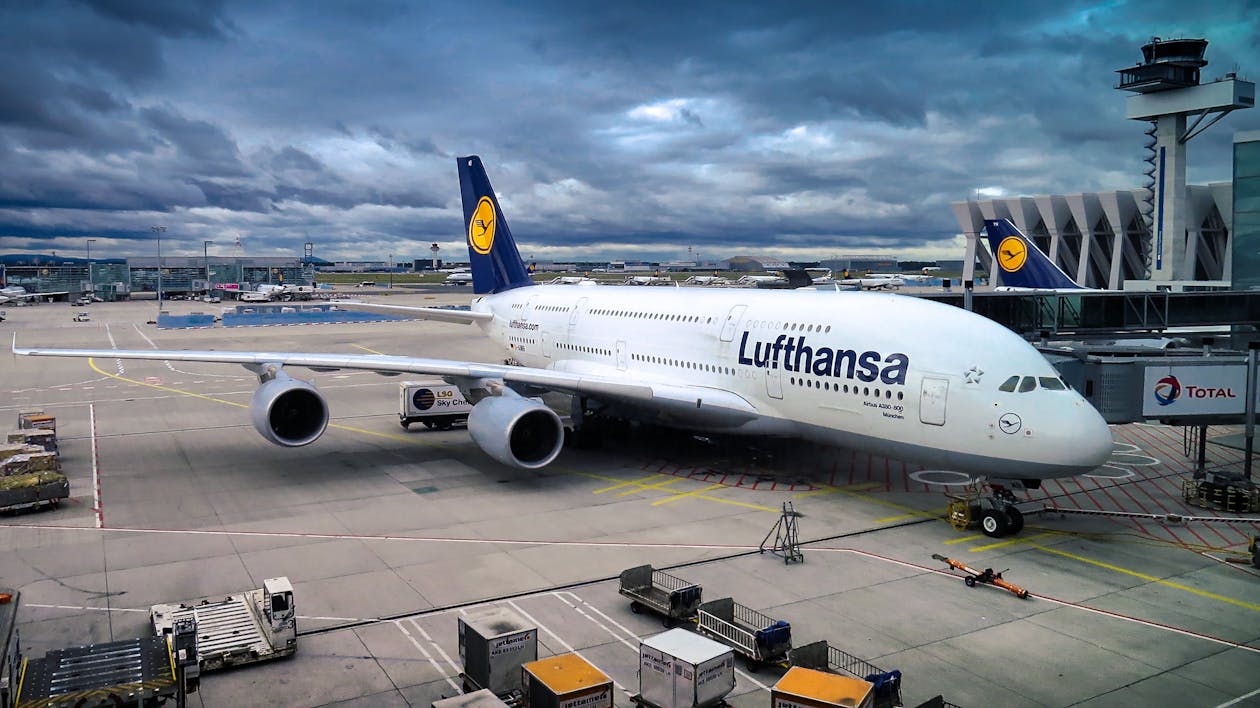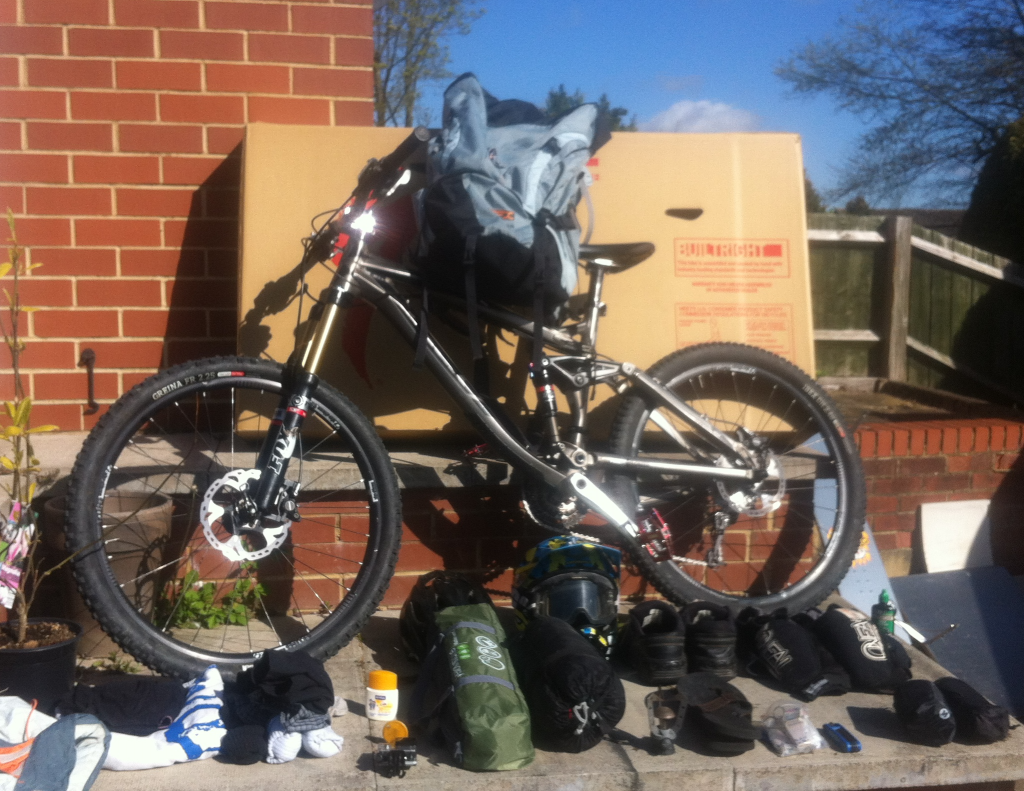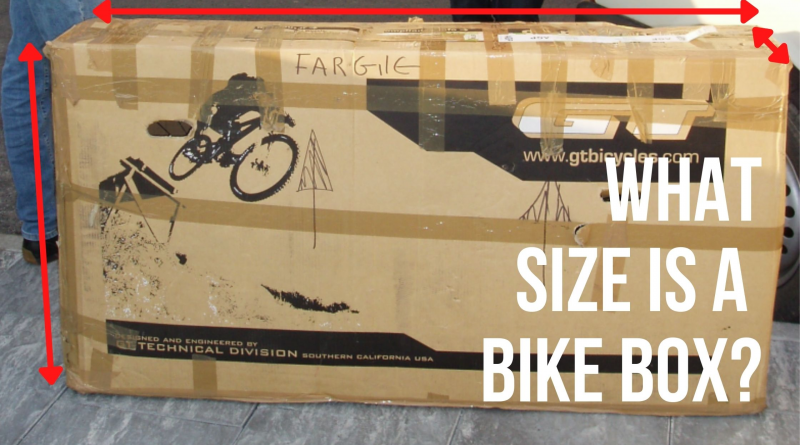What Size Is a Bike Box? (Bike Box Dimensions + Weight)
Have you just sold a bike? or perhaps you just bought a new bike and you’re wondering if the box will fit in your car? In this article, we explain everything you need to know about bike box sizes, weight, and how to pack up a bike.
So, what size is a bike box? and what weight?
- How Big Is a Standard Bike Box?
- How Much Does Bike Box Cost?
- Will a Bike in A Box Fit in My Car?
- How Heavy Is a Bike Box? (Max Weight For A Bike Box)
- How Do You Measure a Bike for Shipping?
- Which Companies Ship Bikes?
- What Bike Box Dimensions And Weight Do Airlines Accept?
- How Can I Ship a Bike without Disassembly?
- What Is the Best Way to Pack a Bike Box for Shipping?
- Final Thoughts
How Big Is a Standard Bike Box?
So, how big is a bike box? The standard bike box dimension is : 43x11x32 inches (110 x 28 x 82cm
| Bike Box Sizes | |
| Most common bike box size | 43x11x32 inches (110 x 28 x 82cm) |
| 53x29x9 inches (134 x 73 x 22cm) | |
| 54x28x8 inches (137 x 71 x 20cm) |
The bike box size of 43x11x32 inches is the most common because it fits within the 130 inches (330 cm) international shipping size limit. This means it fits within the economical domestic and international rates, normally making shipping cheaper.
How Much Does Bike Box Cost?
If you buy a bike box from a shipping company the will normally charge around $25 (£20). If you want a free bike box most bike shops will give you one if you ask nicely.
Will a Bike in A Box Fit in My Car?
Most cars will fit a bike box in the back with the rear seats folded down flat. However, some cars will be too small for a bike box so it’s always worth measuring first. If the bike is too big for your car, you might be able to take the bike out of the box and remove both wheels. Then remember to take some packing tape so you can put your bike in the box once you’re there.
How Heavy Is a Bike Box? (Max Weight For A Bike Box)
The average weight for a cardboard bike box alone is around 4lbs (2kg). The average weight of a bike box including a bike is around 50 lbs (23kg). However, it depends on the type of bike.
If you want to make a rough calculation of a bike and bikes boxes total weight, try this simple equation:
2kg box weight + 2kg packing weight + bike weight (see bikes below) = bike/box total weight
| Bike Type | Average Bike Weight |
| Kids Bikes (5-7 Years) | 24lbs (9kg) |
| Recumbent | 32lbs (14.5kg) |
| BMX | 24 lbs (11kg) |
| Beach Cruisers | 37lbs (16kg) |
| Road Bike | 20lbs (9kg) |
| Hybrid | 25lbs (11.5kg) |
| Mountain Bike | 29lbs (13kg) |
| E-Bike | 50lbs (23kg) |
Please note that the table above shows the average weight by the type of bike. Many bikes are made of different materials and have different components which mean the weight can vary a lot. The table is just to give you a rough estimate.
How Do You Measure a Bike for Shipping?
All you need to do is measure the length, height, and width.
Which Companies Ship Bikes?
US – https://www.bikeflights.com/ship
UK – https://www.bikedelivery.co.uk/
European – https://www.eurosender.com/en/pack-ship/bike
What Bike Box Dimensions And Weight Do Airlines Accept?
Size/Dimensions
Most Airlines charge extra for bikes but also allow you extra sizing to accommodate a large bike box or bike bag. The most common sizes of bike boxes or bags should be fine, but it’s worth double-checking with your airline.
Most airlines have a maximum baggage size of 62 linear inches (length + height + width = Linear total). Few try to say a bike box has to fit within this sizing which is impossible for most types of bike.
Weight
Most airlines have a maximum weight limit that is between 50lbs (22.6kg) and 70lbs (32kg).
Requirements airlines impose with bikes:
- Tyres deflated (personally I leave a small amount of air in to protect the rims)
- Pedals removed
- Handlebars twisted (so they are parallel with the frame)
- Rear wheel removed (this is for bikes longer than 140cm, however, I try to keep the rear wheel on as it helps to protect the drivetrain and rear disk brake)
Not sure on which tyre pressure to run, check out our Mountain Bike Tyre Pressure Calculator

How Can I Ship a Bike without Disassembly?
Most bikes are shipped with the bike fully built, except for the front wheel and handlebar removed. Fitting the bars and front wheel back onto the bike should be fairly simple for the average DIY home bike mechanic. Remember, if it’s a new bike it’s always worth getting a bike mechanic to fully check and inspect the bike before riding. As most bike brands don’t put bikes together perfectly from the factory, and could save you lots of issues.
Average Cost of a Bike Tune-Up or Service (What’s Included?)
What Is the Best Way to Pack a Bike Box for Shipping?
After spending years as an international mountain bike racer, I am well experienced in shipping and flying with bikes.
You will need:
- Bike box/bag
- Ducktape/zip ties
- bubble packing or packing foam
- Remove the front wheel.
- Remove handlebars from the stem. not the steerer tube.
- Apply lots and lots of packing to the bottom of the forks, as the bike will be sitting on this and you don’t want to damage the forks. (Attach with duck tape or zip ties).
- Completely cover the frame with lots of packing on both sides.
- Put the bike in the box.
- Tape the handlebars securely to the frame.
- Wedge the front wheel against the drive size of the frame. Ensure any disks are facing into the frame, you should be able to position it so the wheel hits the frame, while creating a protective pocket for your disk. If you can’t, remove the disk.
- Don’t forget to pack your pedals!
- Fill any empty space with bubble packing or riding gear. You want your bike to be as secure as possible (nothing rattling about).
- lastly, seal the box well with duck tape. Personally, I prefer to use loads of duck tape all around the box to help give the box a few extra protections. Always apply extra tape to the box handles to help stop them from being damaged. lastly, draw some big arrows on the outside of the box to indicate which direction the bike should be sitting.

Final Thoughts
Whether you’re shipping or flying with your bike, it’s important to pack your bike well, and double-check if your courier or airline has any specific rules traveling with bikes.
You may also like:




